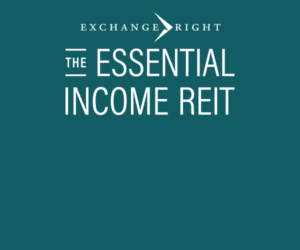Watermark Lodging Trust to Delay Filing Q1 2020 10-Q, Discusses Risks from COVID-19

May 14, 2020
Due to the circumstances related to COVID-19, Watermark Lodging Trust, Inc. (the “Company”) is unable to file the Form 10-Q on a timely basis due to delays in the preparation and final review of the Form 10-Q by the relevant parties within the Company, due in part by the attention and resources the Company has focused on addressing the severe impacts of the COVID-19 pandemic on its business and operations, as described below. The Company will file the Form 10-Q no later than 45 days after the original due date.
The following risk factors explain how the Company’s business could be impacted by COVID-19:
The Current COVID-19 Pandemic
The full extent of the effects of the COVID-19 pandemic on the Company’s business for the foreseeable future cannot be predicted with certainty. As of the date of this Form 8-K, the Company has suspended operations at approximately half of its hotels and significantly reduced staffing levels at the remaining properties. The Company has incurred and will continue to incur significant costs related to the reductions in service at the hotels, including as a result of employee terminations or furlough arrangements.
A number of the Company’s hotels have entered into cash management arrangements with the lenders on the related mortgage loan agreements and the Company expects more to do so in the coming months, absent relief from lenders or government intervention. The Company has sought relief from all of its lenders to defer interest payments and waive the application of certain cash flow covenants. In addition, approximately $277 million of indebtedness is scheduled to mature after the date of this Form 8-K through December 31, 2020. This indebtedness is nonrecourse mortgage indebtedness and the Company has extension options with respect to a portion of such indebtedness. If the Company’s lenders do not provide covenant relief or if the Company is unable to repay, refinance or extend any such indebtedness, the lenders may declare events of default and seek to foreclose on the underlying hotels. The Company may also seek to give properties back to the lenders. The Company has begun active efforts to raise capital through a variety of strategies, including, without limitation, sales of assets, potentially at discounted prices; incurrences of debt; joint venture arrangements; and/or issuances of equity securities in transactions which may be dilutive to its stockholders.
The Company’s operations for the foreseeable future will continue to be significantly impacted by the pandemic. Even when all of its hotels are able to reopen, it expects demand for its hotels to recover slowly and over time until the spread of the virus, the fear of its spread and government-imposed quarantines and restrictions on travel and large gatherings subside. In addition, the Company expects to have to reconfigure the layout of its properties, add cleaning services and systems and take other steps to seek to address customer concerns, which will require the Company to incur expenditures which may be material.
These and other effects of COVID-19 are materially and adversely affecting its current business, results of operations, financial condition, cash flows, ability to meet financial covenants under financing arrangements, ability to pay dividends, and asset valuations, and they are expected to continue to do so for the foreseeable future. The severity of the impact will depend on the duration of these conditions. The Company will continue to assess the financial impacts of COVID-19 to its business, which currently is highly uncertain. The disruption to the global economy and to its business caused by COVID-19 may lead to triggering events that may indicate that the carrying value of certain assets, including investments in real estate, equity investments in real estate, and intangibles, may not be recoverable, resulting in impairment charges. It may also affect the upcoming assessment under Accounting Standards Codification 205-40 as to whether there is substantial doubt about the Company’s ability to continue as a going concern within one year after the date on which the Company’s financial statements are issued. These conditions could also magnify the adverse effects of the other risks described in the Company’s joint proxy statement/prospectus filed with the Securities and Exchange Commissions on January 13, 2020, as supplemented from time to time, and in Item 1A. Risk Factors in the Company’s Annual Report on Form 10-K for the year ended December 31, 2019, filed on March 12. 2020.
The financial condition and results of operations of the Company will depend on access to cash flow from operations, sales of assets and additional debt capital and, possibly, additional equity capital, all of which are subject to the performance of its hotel portfolio as well as general market and economic conditions and other factors, many of which are beyond the Company’s control. Any future equity issuances could be dilutive to shareholders.
The ability of the Company to execute its near and longer-term business strategy depends on access to an appropriate blend of cash flow from its hotel operations, asset sales, debt financing, including mortgage financing, lines of credit and other forms of secured and unsecured debt, and potentially equity financing, including common equity and preferred equity, and joint venture financing, the availability of which will be affected by the performance of its hotel portfolio as well as general market and economic conditions and other factors, many of which are beyond its control. The COVID-19 outbreak has resulted in severe volatility and disruption in the financial markets. There can be no guarantee that financing will be available in sufficient amounts, on favorable terms or at all, and any reduction in available financing may materially adversely affect the Company’s financial condition and results of operation. If the Company issues additional equity securities, instead of debt, to manage capital needs, the interests of existing shareholders could be diluted.
In light of the impact that the COVID-19 outbreak has had on the Company’s business, the Company has suspended distributions and redemptions, subject to limited exceptions, and there is no assurance as to when the Company will commence paying distributions or accepting redemptions.
In light of the impact that the COVID-19 outbreak has had on the business and cash flows of the Company, and the uncertainty as to the ultimate severity and duration of the outbreak and its effects, the Company has announced it has suspended paying distributions on its common stock. The Company has also maintained the suspension of its redemption program in effect, subject to limited exceptions. The Company’s board of directors will continue to evaluate the continuing and future effects of the COVID-19 outbreak on its financial condition, earnings, debt covenants and other possible needs for cash, and applicable law, in considering its ability to pay distributions and accept redemptions in the future. The Company’s stockholders have no contractual or other legal rights to distributions or redemptions that have not been authorized by the Company’s board of directors. There can be no assurance when or if distributions and redemptions will be authorized in the future, and if authorized, whether distributions or redemptions will be in amounts consistent with the Company’s historical levels of distributions and redemptions.
Source: SEC











